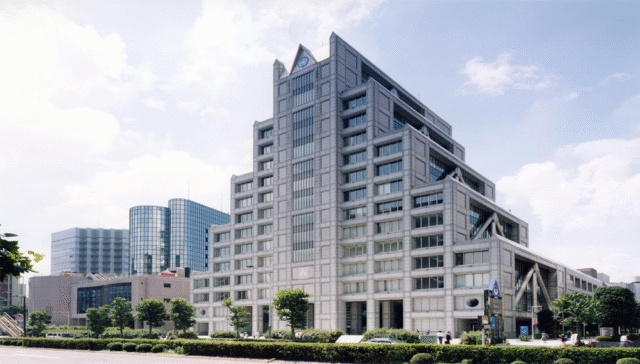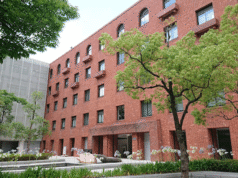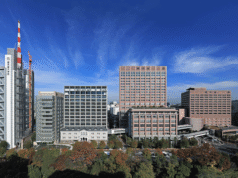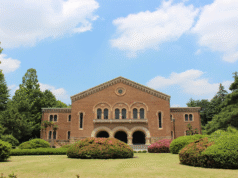United Nations University: Global Scholarly Nexus for Sustainable Development and Peace
Introduction
Established under the United Nations General Assembly’s mandate and headquartered in Tokyo, United Nations University (UNU) stands as the UN’s dedicated academic and research arm. Uniquely positioned within the UN system, UNU functions as a global think-tank and postgraduate institution that tackles critical challenges—from climate and security to development and transformative technologies—fostering solutions through education, research, and global collaboration.
1. Establishment & Historical Evolution
- UNU was formally established by the UN General Assembly in December 1972, with its Charter adopted in December 1973, soon becoming the world’s first international university (United Nations University).
- It officially commenced academic operations in September 1975, facilitated by the Japanese government’s generous donation of $100 million and provision of headquarters in Tokyo, enabling UNU to launch research and training aligned with UN priorities (United Nations University, Wikipedia).
- Its primary thematic clusters, initially centered on world hunger, natural resources, and human development, have evolved into four strategic fields:
- Climate change & environment
- Peace & security
- Economic & social development
- Transformative technologies (United Nations University, Wikipedia).
2. Organizational Structure & Affiliations
Admission & Governance
- UNU operates under a Rector, who holds UN Under-Secretary-General rank. It is governed by a UNU Council, responsible for policies, budget, and oversight (United Nations University, Wikipedia).
Global Reach
- The UNU network spans across 13 institutes in 12 countries, alongside liaison offices at UN Headquarters in New York and UNESCO Headquarters in Paris (United Nations University, UNU Archives).
- It serves as a bridge between the UN and global academia, engaging with Member State institutions to bolster research-informed policymaking (United Nations University, UNU Archives).
3. Academic Programs & Courses Offered
Degree Programs
- UNU is the only UN body authorized by the General Assembly to award postgraduate degrees, including Master’s and Doctoral programs (United Nations University, Wikipedia).
- It delivers:
- Degree programs (MA and PhD)
- Non-degree courses, intensive training
- Postdoctoral fellowships (United Nations University).
UNU integrates faculty and learners from both developing and developed countries, fostering diverse academic collaborations that align with UN priorities and governance structures (United Nations University).
4. Facilities & Campus Infrastructure
- UNU Centre in Tokyo serves as the main hub—housing the Rector’s Office and administrative functions, with status akin to UN diplomatic missions (United Nations University, Wikipedia).
- The numerous UNU institutes across continents act as satellite nodes focused on specialized themes and regional impact.
5. Address & Contact Details
- Headquarters (UNU Centre)
Address: 5-53-70 Jingumae, Shibuya-ku, Tokyo 150-8925, Japan
Tel: +81 3 5467 1212 | Fax: +81 3 3499 2810
Email: academicaffairs@unu.edu (United Nations University).
6. Academic Excellence
UNU’s academic reputation is anchored in its:
- Direct affiliation with the UN Charter and mission
- Emphasis on evidence-based policy research
- Multidisciplinary, globally integrated approach across thematic areas such as peace, environment, development, and transformative tech (United Nations University, UNU Archives, Wikipedia).
7. Career Development & Professional Opportunities
- While no traditional placement cell exists, UNU offers invaluable resources for emerging scholars and practitioners in:
- Specialized postgraduate and fellowship training
- Hands-on participation in policy-focused research
- Access to international networks that foster career development in global governance and academia (UNU Archives, United Nations University).
8. Campus Life & Student Ecosystem
- Rather than a student-centric campus, UNU empowers students through research and training hubs embedded in UN-linked institutes around the world.
- Learners interact with UN systems, global policymakers, and diverse academic communities—nurturing unique learning atmospheres.
9. Research Activities & Thought Leadership
- UNU’s research agenda addresses global priorities:
- Peace and security
- Social and economic development
- Environment, climate, and energy
- Technology and innovation (Wikipedia, UNU Archives).
- A bibliometric study found UNU’s papers consistently rank above world average, with 65% produced through international collaborations, underlining the university’s global research footprint (arXiv).
10. Scholarships & Fellowships
- Tuition schemes are programme-dependent, and UNU may offer tuition waivers for exceptionally qualified individuals with demonstrated need (United Nations University).
- Scholarship opportunities exist but are limited and highly competitive, with candidates encouraged to seek complementary external funding avenues (United Nations University).
11. Notable Alumni
- As UNU focuses on attracting postgraduate and professional learners embedded in the UN system, specific alumni names are not publicly highlighted. Its transformative impact lies in the capacity built among global scholars, young leaders, and policymakers.
12. Reputation, Rankings & Awards
- UNU holds diplomatic status and is a unique institution chartered by the UN General Assembly.
- Its differentiation comes from:
- UN Charter alignment
- Strategic thematic focus
- Global collaborative research networks and policy footprints
- Interdisciplinary and development-oriented missions (United Nations University, UNU Archives, Wikipedia).
Conclusion
The United Nations University represents a visionary integration of academia and global governance—rooted in UN ideals and active across continents. Since 1975, it has cultivated a unique ecosystem centered on postgraduate education, policy-informed research, and global collaboration. With its commitment to peace, development, environment, and technological transformation, UNU continues to empower scholars and address pressing global challenges—embodying the role of an international university for the public good.
Quick Overview Table
| Aspect | Details |
|---|---|
| Established | 1972 (UNGA decision); operational from 1975 |
| Headquarters | Tokyo, Japan (UNU Centre) |
| Global Network | 13 institutes across 12 countries + liaison offices |
| Programs Offered | Master’s, Doctoral, training courses, postdoctoral fellowships |
| Research Areas | Peace, Development, Environment, Technology |
| Scholarships | Limited funding, tuition waivers, external funding encouraged |
| Unique Identity | UN-chartered, policy-oriented, globally networked university |
| Contact Info | Tel, Fax, and address in Shibuya, Tokyo |
United Nations University Japan courses, UNU Japan admissions 2025, study at United Nations University Tokyo, UNU global sustainability programs, United Nations University scholarships Japan, postgraduate programs at UNU Japan, UNU Japan research opportunities, international students at UNU Japan














